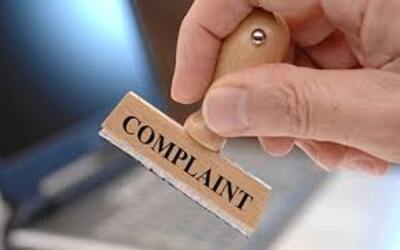
What is Halal Certification?
-
Halal is an Arabic term that means permissible or legal.
-
Haram, which means unlawful or prohibited, is the polar opposite of Halal.
-
Halal and Haram are universal terms that can be applied to any situation. Food items, meat products, cosmetics, personal care products, pharmaceuticals, food ingredients, and food contact materials are the only things we'll use these phrases for.
-
Dietary regulations are very severe for Muslims and Jews (Kosher). Dietary regulations in Islam are determined by the Holy Quran (given Divine Book), Hadith (sayings of the last Prophet Muhammad, Peace and Blessing be upon Him), and Fiqh (jurisprudence) of the Muslim juries: Hanafi, Shafi, Maliki, and Hanbali.
- Food classification as Halal is a significant matter that should only be done by a Muslim who is well-versed in Islamic dietary requirements.
Halal means permissible, permissible, lawful, or legal. When it comes to food or drink, it signifies that it is legal, permissible, or permissible for Muslims.
Halaal foods and beverages are defined by Islamic dietary regulations. The Holy Quran (the revealed book), the Hadith (sayings of the last Prophet, Muhammad, Peace and blessings of Allah be upon him), and the fiqh (jurisprudence) of the Muslim Jurists: Hanafi, Shafii, Maliki, and Hanbali describe these Islamic dietary regulations.
Haraam is the polar opposite of Halaal. It signifies forbidden, forbidden, unlawful, and illegal. Food classification as Halaal is a very important religious matter that should only be done by a Muslim who is well-versed in Islamic dietary requirements.
Why is Halal Certification important for you?
- The Halal market is believed to be worth trillions of dollars, with a global consumer base of around 1.9 billion Muslims spread over 112 nations.
- The demand for Halal-certified items is growing.
- The growing Muslim population in the Middle East, North and South Africa, South and South Asia, the former Soviet Union, and China provides a valuable food supply network.
- Southeast Asia and the Middle East are now the two main markets for Halal products. More than 400 million Muslims live in these locations.
- Muslims eat only Halal food, although non-Muslims can eat Halal food as well.
- A Halal certificate certifies that the products meet the dietary and lifestyle criteria of Muslims.
- Halal certification improves the marketability of your items greatly.
- If you're selling or planning to export to Muslim-majority nations, the Halal certificate will help you meet one of the importing countries' most stringent standards.
The main goal of Halal Certification is to assist the national and international Muslim communities in adhering to their religious obligations. Halal refers to a wide range of products and services that Muslims utilise on a regular basis. Muslim customers prefer products that adhere to Islamic Law's process and procedure.
Industry and goods and service producers are frequently unaware of these regulations. As a result, they fail to consider the requirements of this group of people. The DHCE promotes a single set of acceptance and certification standards. The gap between Muslim customers and the industry is bridged by a uniform standard. It provides trust and convinces Muslim customers that the Halal process is strictly followed:
- Purity and cleanliness of the sources from which products are produced, as well as the manufacturing process.
- Human life safety is ensured by consuming only wholesome and healthful foods.
- Integrity and an ethical way of life through avoiding animal suffering, environmental harm, and unethical commercial methods.
- To put it another way, Halal is a way of living that enhances a person's bodily and spiritual well-being.
- Everyone can eat halal food. Whether you are a Muslim or not, Halal is the ultimate seal of purity and safety, ensuring the highest quality products.
Benefits of Halal Certification
Halal Certification brings many benefits, such as:
- As a reassurance to Muslim clients that the food served is Halal and follows Islamic Law.
- Assure clients that the food served is Halal and wholesome, and that the hygiene and sanitation processes on the premises are up to par.
- Increase the number of customers by recruiting Muslim and non-Muslim Halal consumers.
- Increase a restaurant's revenue and marketability, particularly among Halal customers.
- If you wish to export, the Halal certificate will help ensure that Halal consumers in importing nations are satisfied.






